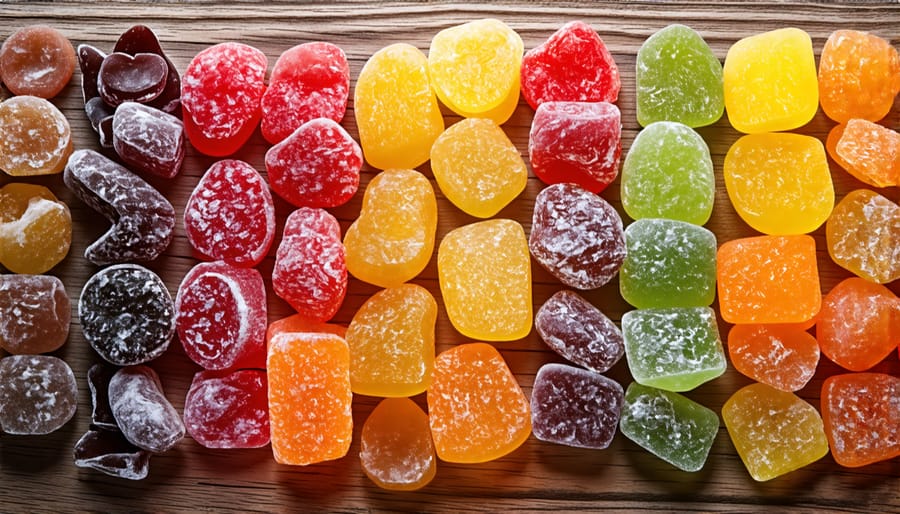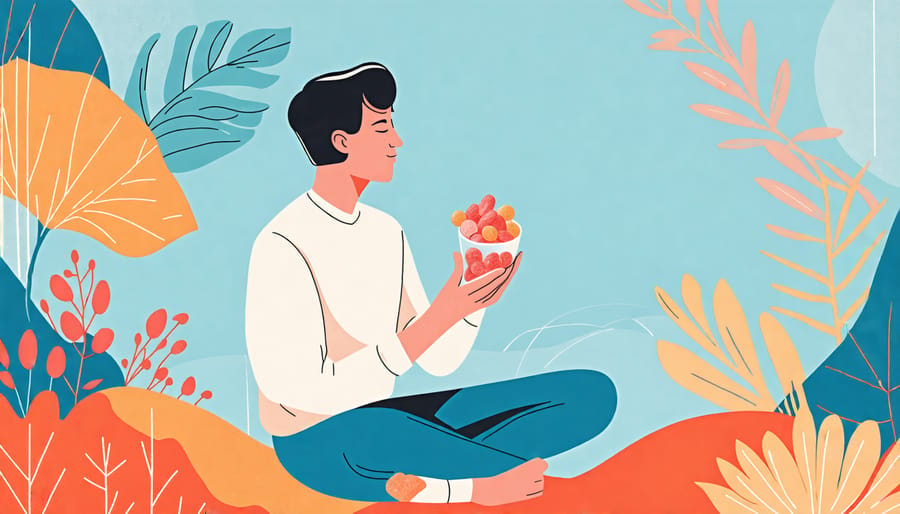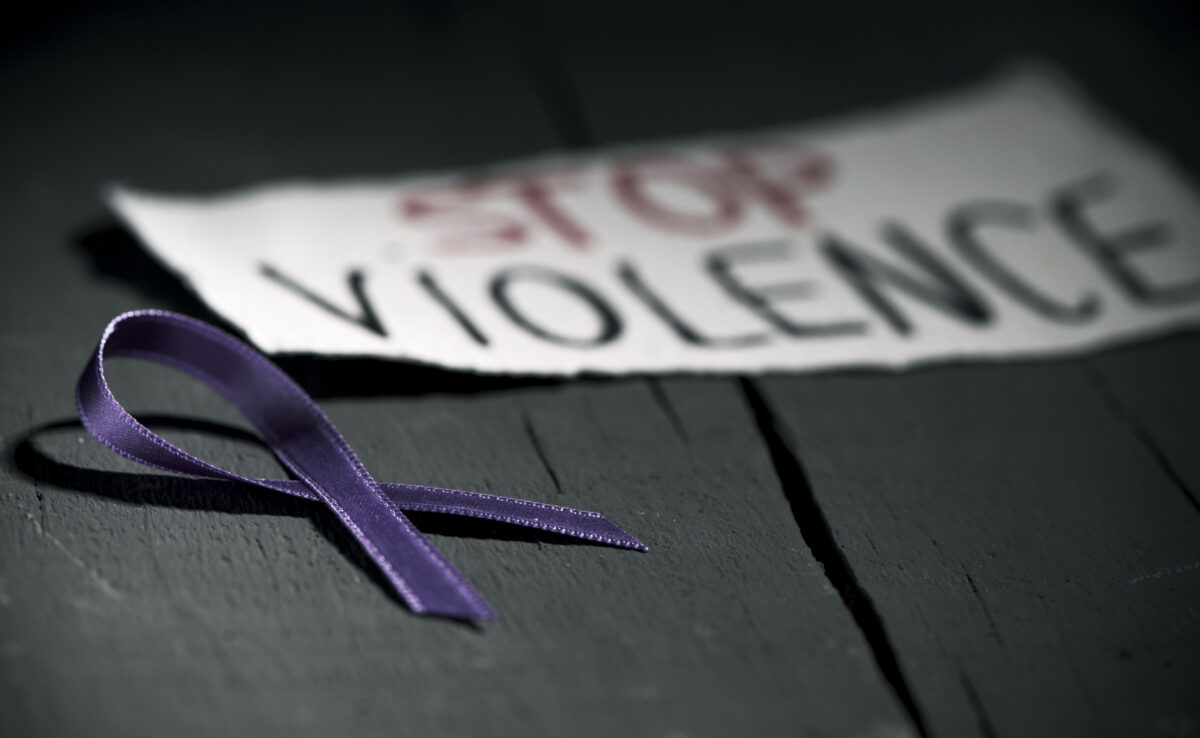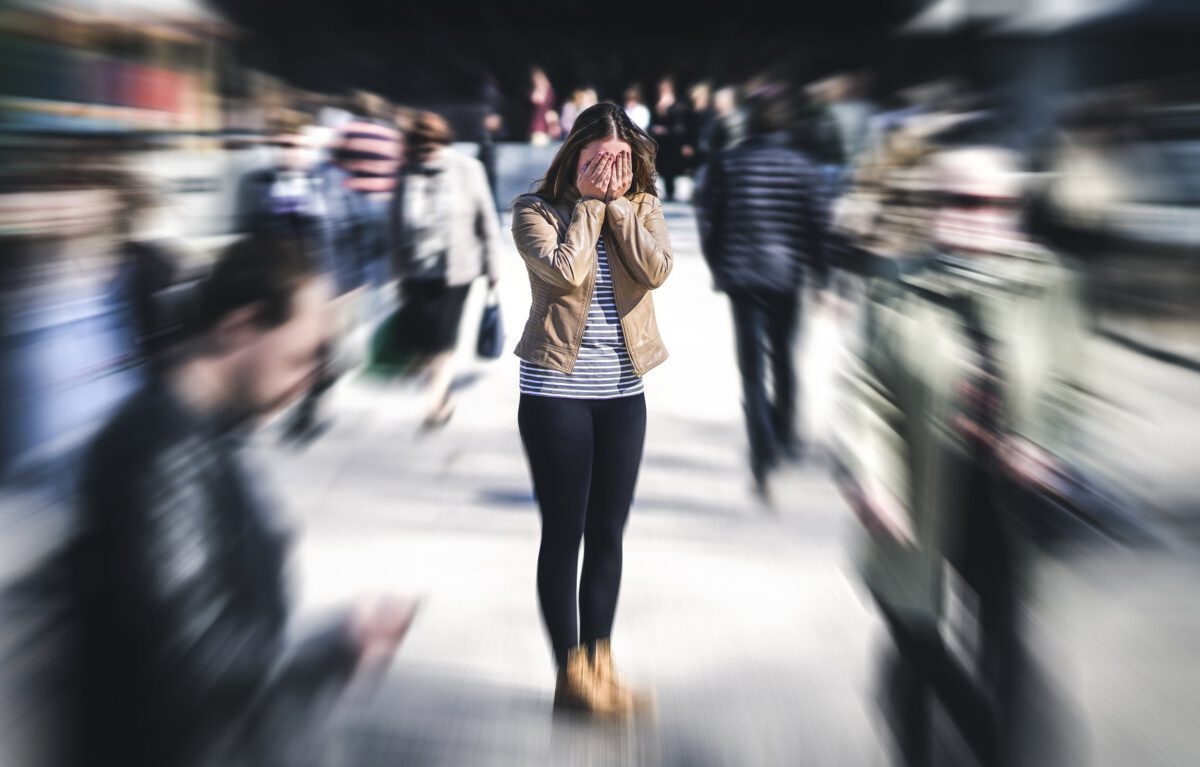Discover novel culinary experiences to boost mental wellness. Start by exploring the vibrant world of sour rainbow treats, embracing their playful textures to prompt mindful eating and enhance mood. Incorporate vibrant foods like vibrant vegetables and fruits into daily meals, as they can significantly uplift your mental state with essential nutrients and colors. Experiment with cooking as a meditative practice—focusing on the rhythm of chopping and the aroma of spices, immersing yourself in the present moment. Finally, cultivate community by sharing meals, engaging with others around the table to combat loneliness and foster a sense of belonging. Through these approaches, infuse mental wellness into everyday life by leveraging culinary trends for a richer, more fulfilling experience.
The Connection Between Food and Mental Wellness
The food we eat plays a significant role in our overall mental health and well-being. Certain food trends, such as the popularity of processed and sugary foods, can negatively impact our mood and contribute to feelings of anxiety and depression. On the other hand, consuming a balanced diet rich in whole foods, fruits, vegetables, and healthy fats can promote mental wellness by providing essential nutrients for brain function. Mindful eating practices, such as paying attention to hunger cues and savoring meals without distractions, can also foster a healthier relationship with food and improve emotional well-being. Some individuals may find that incorporating specific foods or supplements, like omega-3 fatty acids or CBD for anxiety, can help manage symptoms of stress and mental health conditions. However, it’s important to recognize that food alone cannot replace professional treatment for mental health concerns. While a nutritious diet can support psychological well-being, it should be part of a comprehensive approach that includes therapy, medication when necessary, and other self-care practices. By being mindful of the connection between food and mental health, individuals can make informed choices that nourish both their bodies and minds.

Emotional and Psychological Benefits
Nostalgia and Comfort
Nostalgia often has a profound impact on our emotional well-being, and the sweet simplicity of nostalgic candies can offer a comforting escape from the stresses of daily life. Many of us can recall fond memories of childhood delight sparked by a taste of our favorite treat. This sense of connection to happier times can serve as a gentle reminder that joy can be found in simple pleasures, providing an emotional anchor during turbulent moments. When struggling with anxiety or recovery from trauma, incorporating moments of nostalgia can help ground us and offer a break from negative thoughts. It’s crucial to engage with this comfort mindfully, ensuring that these experiences enhance well-being rather than rely on them as a sole coping mechanism. By celebrating the joy that nostalgic candies can bring, we can harness a valuable source of emotional comfort and integrate it into a broader strategy for maintaining our mental wellness.
Mindfulness and Indulgence
Exploring the intersection of culinary trends and mental wellness, freeze dried candy offers an intriguing avenue for practicing Mindfulness. With their unique texture and intensified flavor, these candies can stimulate the senses, encouraging a focused and present approach to eating. By deliberately savoring each bite, individuals can turn a simple snack into an opportunity for grounding and self-awareness. This practice not only enhances the enjoyment of indulgence but also helps in cultivating a healthier relationship with food. Mindful indulgence in freeze dried candy allows for pleasure without excess, providing an empowering alternative to the cycle of guilt and overconsumption. By consciously choosing quality over quantity, individuals can enjoy treats responsibly. This approach aligns with the broader goal of mental wellness, offering a small yet significant strategy to combat anxiety and emotional eating. As part of a mindful eating routine, freeze dried candy becomes more than just a snack; it’s a tool for nurturing mental balance and self-care.

Potential Drawbacks and Considerations
While freeze dried candy can provide a fun and unique way to enjoy a sweet treat, it’s important to consider some potential drawbacks, especially when it comes to mental wellness. One key concern is the sugar content. Like most candies, freeze dried varieties are often high in added sugars, which can contribute to mood swings, irritability, and crashes when consumed in excess. Moderation is key. It’s also crucial to approach freeze dried candy as an occasional indulgence rather than a regular coping mechanism. While a little treat can certainly boost your spirits in the moment, relying too heavily on sugary snacks to manage mental health challenges is not a sustainable or healthy long-term strategy. Instead, aim to build resilience through a well-rounded self-care plan that includes nourishing foods, regular movement, quality sleep, and supportive connections. If you find yourself frequently turning to freeze dried candy or other sweets to cope with difficult emotions, it may be worth exploring the underlying reasons with a trusted therapist or counselor. They can help you develop alternative coping strategies and work through any deeper issues. Remember, it’s okay to enjoy freeze dried candy as an occasional pick-me-up – just be mindful of your overall consumption and rely on it as part of a balanced approach to mental wellness.
Incorporating Freeze Dried Candy Mindfully
While freeze dried candy can be a fun treat, it’s important to incorporate it mindfully into your lifestyle to support mental well-being. Consider setting reasonable boundaries around consumption, such as enjoying it in moderation and balancing it with nourishing foods. Be aware of any emotional triggers that may lead to overconsumption and develop healthy coping strategies. If you’re in recovery from an eating disorder or substance use, it’s crucial to discuss the role of such treats with your support team. Remember, occasional indulgences can be part of a balanced approach to mental health, but it’s essential to prioritize overall nutrition, hydration, sleep, and stress management. If you find yourself struggling with compulsive behaviors around food, reach out for professional guidance. Ultimately, by practicing self-compassion and making informed choices that align with your recovery goals, you can enjoy freeze dried candy as a small pleasure within a holistically healthy lifestyle.











